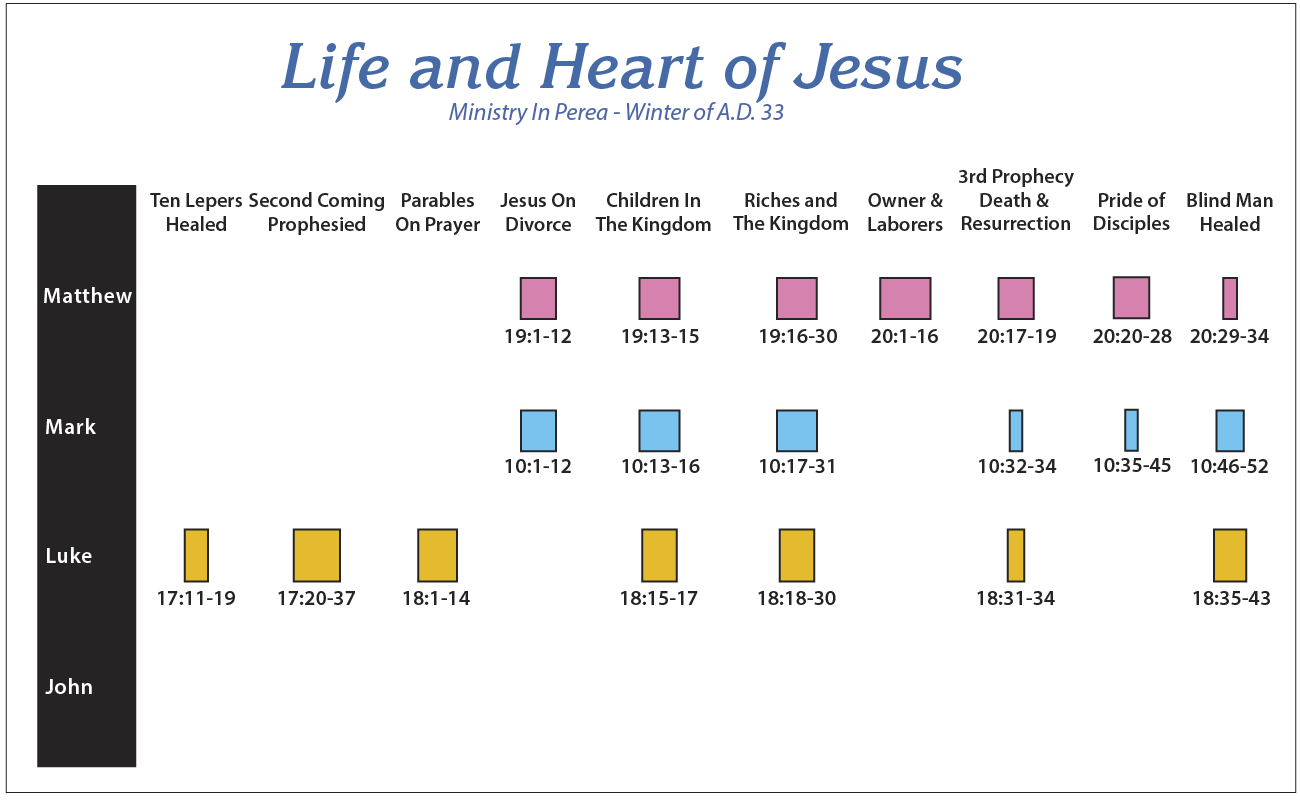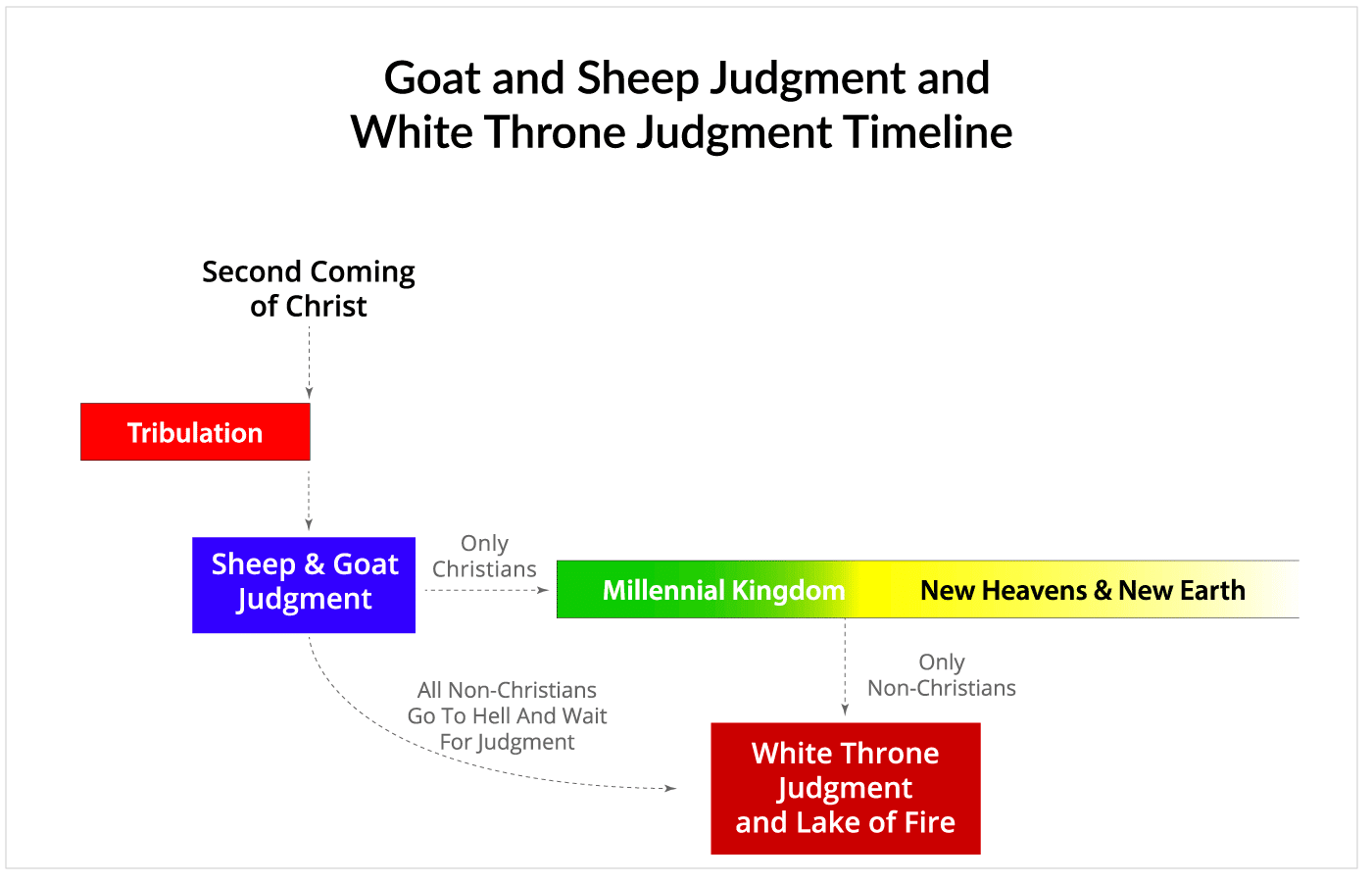Pray Continually and Never Lose Heart

A woman called the church on a Sunday afternoon and asked if she could attend our Sunday night service. She explained that she was a student at the local university. I learned that she was taking a class in religion. She had an assignment that required her to attend a church and after the service to talk with the pastor. She wanted to know if she could attend the service that evening. I responded by saying that she was welcome and that I looked forward to meeting her. Sure enough, she came and sat with my wife and me. That evening we had planned to celebrate the Lord's Supper. The gospel was presented as part of the service, and I prayed that she would hear the gospel and respond. Since she had asked to talk with me after the service, I gave her the opportunity. I cannot remember her first question, but it became clear very soon that she was offended that I had said Jesus died on a cross and had displayed a cross on the screen. During my message I had referred to the persecution of Christians. She was also offended that I had said that. She asked in what way are Christians persecuted. Then I mentioned that Christians are insulted, maligned, ridiculed, and even killed because of Jesus. She was angry with me. While her words were not overtly negative, her attitude indicated she was angry. As she left, I invited her back to the church, but she did not return. I do not remember her name, but God does. Please pray for her, because God loves her. Our study is in Luke 18:1-8, and it is about how to pray in the midst of persecution, and how God responds when we are persecuted and discouraged.
Background
In our last study, which was the "Seven Signs of Christ's Second Coming," we learned that Jesus voluntarily gave His disciples seven signs to help them know when His second coming was near. Later in Mathew 24:3-4, we learn that the disciples asked Him to give them some signs of His coming. We do not know if they forgot Jesus' earlier words in this passage or if they wanted more information. Whatever the reason, we are told they wanted to know when He would return.
The apostles Paul, Peter, and John wrote that the second coming of Christ would occur sometime in the future. They were not sure when it would occur, but they trusted His promise. When the apostle John wrote the book of Revelation (A.D. 95) all of the other apostles had died. Therefore, when John wrote that the second coming of Christ would occur sometime in his future, it is obvious that he understood Jesus' messages that He would return (Luke 17:22-37;Matthew 24:9-30). Today, we are still waiting for Christ's return, and Christians are still being persecuted and insulted.
Pray and Do Not Lose Heart
This brings us to our study in Luke 18:1-8. In this parable Jesus taught the disciples several principles. First, the parable teaches us to pray at all times and then ends with the principle and promise that God the Father will bring about justice. The parable climaxes with the question, "Will He find faith on the earth?" So, prepare to enjoy this unusual parable that ends with a surprise.
The first verse of our study is Luke 18:1.
Now He was telling them a parable to show that at all times they ought to pray and not to lose heart . . . Luke 18:1 (NASB)
Here we are told that Jesus gave them a parable. Who are the "them"? The answer is found in Luke 17:22. Jesus had been teaching the disciples. We must not let the chapter division deceive us. Luke 18:1 does not start a new topic. We must remember that chapter and verse divisions did not exist when the gospel of Luke was written. They were added later in A.D. 1240. So Luke 18:1 is a continuation of Jesus' teaching from chapter 17. He is still talking to the disciples.
Now Jesus was teaching a parable, and the parable is simple. He said that when we pray we should pray at "all times." The Greek word for "ought" is dei. Most of the time this Greek word is translated as "it is necessary," or "must." That is, it is necessary for every believer to constantly pray. This is the same message that the apostle Paul gave repeatedly in his epistles. For example in Ephesians 6:18 he wrote,
With all prayer and petition pray at all times in the Spirit, and with this in view, be on the alert with all perseverance and petition for all the saints . . . Ephesians 6:18 (NASB)
In 1 Thessalonians 5:17 Paul urges us to,
. . . pray without ceasing . . . 1 Thessalonians 5:17 (NASB)
Now Jesus and Paul are not urging us to pray from the moment we wake up until the time we go to bed. Both Jesus and Paul are referring to an attitude of prayer. We are to pray whenever there is a need. We are to offer a prayer of thankfulness for our food and His blessings. We should pray for the sick, including ourselves when we are sick. We should pray for those in need. We should pray for the salvation of the lost.
Jesus also tells us to continue praying and never lose heart. The Greek word that He used for "lose heart" is enkakeo. It is a compound word of en and kakeo. The first Greek word means "in" and the second word means "bad." Together, the literal meaning is "to give in to evil." As a result, when "not" is combined with enkakeo, the meaning of the verse is "to not give into evil," "to not lose heart," "to not behave badly," "to not grow weary," "to not give up," or "to not lose motivation." The point is that Jesus does not want us to be discouraged when we pray. Notice that Jesus is telling us that we do evil when we become discouraged. Jesus is telling us to be encouraged by praying to our "Father who is in heaven." We should not stop praying for a loved one who is sick, for the salvation of someone, for the restoration of a relationship, or for our own physical health.
Luke 1 gives us an example of God's faithfulness in answering our prayers when they agree with His will. We are told the angel Gabriel visited Zacharias (Luke 1:11, 19). Zacharias was serving in the temple when he appeared. Verse 12 says that the priest was troubled when he saw the angel. But then we read that God planned to answer Zacharias' prayer in verse 13,
But the angel said to him, "Do not be afraid, Zacharias, for your petition has been heard, and your wife Elizabeth will bear you a son, and you will give him the name John." Luke 1:13 (NASB)
Gabriel encouraged Zacharias by telling him that his prayer had been answered. This is an amazing statement because we learn later in verse 18 that Zacharias and his wife were advanced in age. That is, they were past the years of having children. Mostly likely they had prayed repeatedly to have a child in the early years of their marriage. It is obvious that Elizabeth, his wife, was barren. While we do not know how long this couple continued praying, it is clear God waited a long time before He answered their prayers. Further, God waited until it was impossible for them to have children from a medical viewpoint. But He did answer their petition for a child. God just delayed the answer until the "right time." By waiting, God made it obvious that He had great plans for the child.
Another example of the answer to a prayer request being delayed is the prayer offered by the prophet Daniel. Daniel 10:2-3 tells us the prophet had fasted for three entire weeks. His fast was not a complete fast, but one in which he denied himself "tasty food," "meat," and "wine." He apparently did not use any cologne either. Then in verses 10-12 we are told an angel visited Daniel. The angel said,
Do not be afraid, Daniel, for from the first day that you set your heart on understanding this and on humbling yourself before your God, your words were heard, and I have come in response to your words. But the prince of the kingdom of Persia was withstanding me for twenty-one days; then behold, Michael, one of the chief princes, came to help me, for I had been left there with the kings of Persia. Now I have come to give you an understanding of what will happen to your people in the latter days, for the vision pertains to the days yet future. Daniel 10:12-14 (NASB)
Notice the angel told Daniel that he had been sent "in response to your words." That is, Daniel had prayed and so the angel was sent to answer his prayer. We are told that Daniel's prayer was delayed for at least 21 days. Then verses 13-14 reveal why the answer had been delayed. The angel had been delayed by demonic forces. This is an amazing example of a delayed prayer. It gives another reason why our prayers may be delayed.
In Matthew 9:37-38 Jesus urged the disciples to pray that people would be saved.
Then He said to His disciples, "The harvest is plentiful, but the workers are few. Therefore beseech the Lord of the harvest to send out workers into His harvest."
If we are faithful to make this prayer request, we will never stop making this request. We should not become discouraged when we do not see any results from our efforts.
In what we call the Lord's Prayer (Matthew 6:9-10), Jesus has also asked us to pray that the Father's kingdom will soon come.
All four examples illustrate that our prayers can be delayed for unknown, but legitimate reasons. So, we are to persist in our prayers because Jesus has asked us to do so. A delayed answer to our prayers should not discourage us. Jesus urges us to pray without becoming discouraged. Pray without losing heart! Sometimes His answer is no! But sometimes and often, His answer is delayed.
We must remember that the effective prayer, or we could say the persistent and serious prayer of a righteous man and a righteous woman accomplishes much (James 5:16). The most important part of the statement is "righteous." This refers to believers who strive to obey God. God has warned us in Proverbs 15:29 that He is far from the wicked. The point is that God ignores our prayers when we do not confess our sins and strive to stop sinning.
This is the first important principle in this parable since the first verse gives the purpose of the parable. The second principle in this parable is given to us in verses 2-7.

God Responds to the Prayers of His Elect
Then in verses 2 and 3, Jesus gave the disciples a parable. There are three main points we want to discover in this parable. But first, here are the opening two verses of the parable.
. . . saying, "In a certain city there was a judge who did not fear God and did not respect man. There was a widow in that city, and she kept coming to him, saying, 'Give me legal protection from my opponent.'" Luke 18:2-3 (NASB)
The first point in this parable is that Jesus said this event occurred in a certain city. He does not name the city because which city is not important. By not naming the city, the principle could take place in your city or mine.
The Unjust and Unashamed Judge
The second point that we need to notice is that there is a judge in this parable. This judge has two characteristics that we must not miss. The first characteristic is that he does not fear God. This reveals his conscience is damaged. He is not concerned about wickedness or righteousness. He does not have a moral conscience. Proverbs 8:13 reveals his problem. It says,
The fear of the LORD is to hate evil . . . Proverbs 8:13 (NASB)
This means the judge does as he pleases. He does not hate evil. Is that a surprise to you? Did you think that only the judges who live in our day have problems with morals when making judicial decisions? Jesus just revealed that unjust and morally bankrupt judges have always existed. They even existed in His day.
The third characteristic about this judge is that he did not respect people. The Greek word that Jesus used for "respect" is entrepo. This word has the meaning of "to make ashamed." We have experienced examples of this. It is common for youth to attempt to shame another young person or even an adult. Adults can also be offensive. Some make sexually suggestive gestures in an attempt to humiliate someone. That is the primary sense of this word. But in this verse, the Greek language implies that the judge cannot shame himself by his own behavior. He cannot be put to shame by his own actions. We could say he does not care what others think about him as a result of his horrible behavior. He has no moral conscience. He does not have what we might call "proper social graces." Now imagine a judge who does not fear God and as a result he does not hate evil and cannot be shamed by his own bad decisions. That is this judge. He could be extremely offensive and did not care.
The Persistent Widow
The third important principle in this parable is that there is a woman who is a widow. In Jesus' day, an unmarried woman had great difficulty earning a living. That is why God urges us to take care of widows and orphans. Jesus said this widow kept coming to the judge. She did this repeatedly because the judge did not demonstrate care for her situation with an immediate response. Each time she pleaded for legal protection, but he did not show concern by responding.
Verses 4-5 reveal that finally the judge stopped refusing to help this widow, and decided to help. Now notice why he helped. The answer leads to Jesus' next point.
For a while he was unwilling; but afterward he said to himself, 'Even though I do not fear God nor respect man, yet because this widow bothers me, I will give her legal protection, otherwise by continually coming she will wear me out.' Luke 18:4-5 (NASB)
Remember the type of women described in Proverbs 21:9 and Proverbs 27:15. They say,
It is better to live in a corner of a roof
Than in a house shared with a contentious woman.
Proverbs 21:9 (NASB)A constant dripping on a day of steady rain
And a contentious woman are alike; Proverbs 27:15 (NASB)
Both the Greek verbs in Luke 18:3 that state the widow "kept coming" and the judge was "unwilling" are in the imperfect tense. The imperfect tense refers to repeated action. That is, the widow kept coming and the judge kept refusing. She was like dripping water on a rainy day as described in Proverbs 21:9 and Proverbs 27:15. We could say the "house roof was leaking" but the judge refused to fix it. But eventually, he could not tolerate the "leaky roof" any longer and decided to give her legal protection. She won! He said to himself, "she will wear me out." The Greek word literally means "to beat black and blue," or "to cause bruises." The English idiom is that he felt like she was "beating him up" with her words. It is a vivid picture. While women complain that men physically abuse them, women often ignore the fact that they "emotionally abuse" men with their words. They often have better communication skills and use them to their own advantage. That is the message of Proverbs. So the judge finally surrendered and she won the battle. This woman was like constant dripping water. She relentlessly kept making the same request.
Now, it is important to not generalize about what we read in the Bible, otherwise, we will misunderstand the message of Scripture. So, we must examine Jesus' words closely. Jesus had just told the disciples in verse 5 that the judge said he would grant the widow legal protection in order to avoid being worn out. She was abusing him too much. He wanted it to stop. That was his motivation for giving her justice. The point is that he was not truly a godly man with a desire to render justice.
With that comment, Jesus had prepared the disciples for the point for He was striving.
And the Lord said, "Hear what the unrighteous judge said; now, will not God bring about justice for His elect who cry to Him day and night, and will He delay long over them?" Luke 18:6-7 (NASB)
First notice Jesus' very important question, "Will not God bring about justice for His elect, who cry to Him day and night?" The answer is yes! Then notice the second question, "will He delay long over them?" This brings us to the message of the parable.
The next principle that Jesus gives us is about the character and behavior of God the Father. The character of God is why we should be motivated to not lose heart and persistently pray. Why should we persistently pray and not lose heart? The answer is that we have a holy God who cares about His elect, or believers. He will not delay long.
In Exodus 33:13, Moses asked God to reveal His ways, so that he could know Him. Jesus has just revealed the character of God so that we can understand the ways of God. The very character of God reveals why He responds to His elect who are suffering and why He responds with justice. He does not delay long. Jesus just gave us insight into God the Father. He loves His elect, He gives justice quickly. That is why we should not lose heart and continue to persistently pray.

Conclusion
Then Jesus gave the disciples the primary point of the parable.
I tell you that He will bring about justice for them quickly. However, when the Son of Man comes, will He find faith on the earth? Luke 18:8 (NASB)
The primary point is that believers should not lose heart when they pray, because God the Father will provide justice for the elect when He returns to the earth. At the second coming, Christ will finally bring justice. This is a concept that is not often taught because we do not like to think that Christ was referring to bringing justice at His second coming, since it may be in the distant future. We are still waiting for His return.
But this truth is taught by the apostle Paul in 2 Thessalonians 1:6-10. In that passage, Paul tried to encourage the believers in Thessalonica, who were being persecuted. He promised those believers that God would afflict those who were afflicting them (v. 6). In 2 Thessalonians 1:7-8, Paul said that Christ would bring His angels with Him in flaming fire. They would deal out retribution. Christ would bring justice against their persecutors. In verse 9, Paul said, "They will pay the penalty of eternal destruction." The unbelievers will spend eternity in the lake of fire forever (Revelation 20:11-15). Now that is justice! It is a sentence that lasts for eternity.
In 1 Peter 4:3-5, the apostle Peter also wrote about this justice that Christ will bring when He wrote these words,
For the time already past is sufficient for you to have carried out the desire of the Gentiles, having pursued a course of sensuality, lusts, drunkenness, carousing, drinking parties and abominable idolatries. In all this, they are surprised that you do not run with them into the same excesses of dissipation, and they malign you; but they will give account to Him who is ready to judge the living and the dead. 1 Peter 4:3-5 (NASB)
In Romans 12:19 God reminds us that vengeance belongs to Him. Because He is all wise and just, His punishments are just. While believers may suffer and even die in this life, we must remember that this life is the only "heaven" our persecutors will experience. But for believers, this life is our "hell."
To wait for the second coming of Christ may seem to be inconsistent with our concept of not delaying long. But from God's perspective, our life span is but a breath. Job reminds us of this truth in Job 7:16.
I waste away; I will not live forever.
Leave me alone, for my days are but a breath. Job 7:16
Psalm 144:4 says,
Man is like a mere breath;
His days are like a passing shadow.
Psalm 144:4 (NASB)
2 Peter 3:9 reminds us that God the Father wants to give even our persecutors an opportunity to believe in Christ, just as the apostle Paul did. Now that is justice! It also demonstrates His love for all of us.
As we conclude, we must remember that Jesus has been teaching about His second coming since Luke 17:22. In Luke 17:22-37, He described seven signs that would occur before His second coming. In this study, He described the execution of justice that will occur at His second coming. This justice will take place after the battle of Armageddon at the Judgment of the Nations or the Sheep and Goat Judgment in Matthew 25:31-46.

Jesus' point in this parable was to teach us to constantly pray for relief from our persecutors. Our just and loving Father will bring justice. He will not delay long. His quick justice may come in our lifetime or it may come at the second coming of Christ. Whenever it happens, we have gained an important insight into the character of our God and the motivation for continued prayer. Praise the Lord that He is just and loves His elect.
mclaughlinloste1945.blogspot.com
Source: https://www.neverthirsty.org/bible-studies/ministry-perea/pray-and-not-lose-heart-jesus-is-coming/
0 Response to "Pray Continually and Never Lose Heart"
Post a Comment